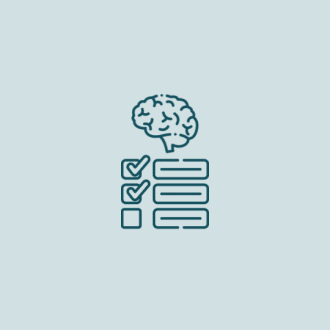The science of curiosity: why we keep asking “why” July 24, 2019 In Creativity
Children have an incredibly inquisitive mind. “Why?” they keep asking. But it seems that as adults we tend to fall into fixed and convenient cognitive patterns.
More from Ness Labs
Novelty fallacy: why new isn’t always better
The novelty fallacy is deeply rooted in our neurobiology. The brain's reward system is stimulated by novel ideas and objects. As novelty sparks our sense of curiosity, our brains make us naturally…
«our attraction to novelty can be helpful for our survival, but a fast-changing environment can render this cognitive bias rather problematic.»
Building an antilibrary: the power of unread books
Unread books can be as powerful as the ones we have read, if we choose to consider them in the right light.
«the more you read, the more you will expand your perimeter of knowledge, and the more unread books will be added to your antilibrary. It is not a bad thing, it means you are progressively turning unknown unknowns into known unknowns.»
The psychology of unfinished tasks
Unfinished tasks can overwhelm us or motivate us. These contradictory experiences are due to the Zeigarnik and the Ovsiankina effects.
«compared to a task that has not yet been started, individuals have a stronger urge to complete interrupted or unfinished assignments.»
Single-tasking: the power of focusing on one task at a time
Trying to multitask can not only hurt our productivity, but also our ability to learn. Fortunately, there is an alternative way to boost your efficiency: single-tasking.
«That’s why multitasking leads to decrements in performance when compared to performing tasks one at a time.»
False compromise fallacy: why the middle ground is not always the best
It can be tempting to seek the middle ground. But the false compromise fallacy can lead to misleading conclusions and poor decision making.
«“best of both worlds” instead.»
What is Refind?
Every day Refind picks the most relevant links from around the web for you. Picking only a handful of links means focusing on what’s relevant and useful. We favor timeless pieces—links with long shelf-lives, articles that are still relevant one month, one year, or even ten years from now. These lists of the best resources on any topic are the result of years of careful curation.
How does Refind curate?
It’s a mix of human and algorithmic curation, following a number of steps:
- We monitor 10k+ sources and 1k+ thought leaders on hundreds of topics—publications, blogs, news sites, newsletters, Substack, Medium, Twitter, etc.
- In addition, our users save links from around the web using our Save buttons and our extensions.
- Our algorithm processes 100k+ new links every day and uses external signals to find the most relevant ones, focusing on timeless pieces.
- Our community of active users gets the most relevant links every day, tailored to their interests. They provide feedback via implicit and explicit signals: open, read, listen, share, mark as read, read later, «More/less like this», etc.
- Our algorithm uses these internal signals to refine the selection.
- In addition, we have expert curators who manually curate niche topics.
The result: lists of the best and most useful articles on hundreds of topics.
How does Refind detect «timeless» pieces?
We focus on pieces with long shelf-lives—not news. We determine «timelessness» via a number of metrics, for example, the consumption pattern of links over time.
How many sources does Refind monitor?
We monitor 10k+ content sources on hundreds of topics—publications, blogs, news sites, newsletters, Substack, Medium, Twitter, etc.
Can I submit a link?
Indirectly, by using Refind and saving links from outside (e.g., via our extensions).
How can I report a problem?
When you’re logged-in, you can flag any link via the «More» (...) menu. You can also report problems via email to hello@refind.com
Who uses Refind?
450k+ smart people start their day with Refind. To learn something new. To get inspired. To move forward. Our apps have a 4.9/5 rating.
Is Refind free?
Yes, it’s free!
How can I sign up?
Head over to our homepage and sign up by email or with your Twitter or Google account.









